
“Here, where nations are free, / We, Germans, also became free. / Millions gratefully greet / The Party and Stalin!” - German poet Erich Weinert’s poem ‘Red German land on the Volga’ ends with such words. It was dedicated to the Autonomous Soviet Socialist Republic (ASSR) of the Volga Germans. The decree establishing it, signed by the leader of the Revolution, Vladimir Lenin, on October 19, 1918, ends with these words:
“The Council of People’s Commissars expresses certainty that, with these provisions brought to life, the battle for the socialist liberation of German workers and German poor in Povolzhye will not result in ethnic strife, but <…> will serve to bring together the German and Russian working masses, the unity of which is the foundation of their victory and their successes in the international proletarian revolution.” However, despite all hopes, the German autonomous region had a hard and tragic fate.

The initiative to create the autonomous region belonged to the Volga Germans themselves. The first movements that promoted ideas of this sort appeared back after the February Revolution of 1917. It brought some freedoms to the people who suffered tremendous harm from Germanophobia, spread across the Russian Empire with the beginning of World War I.
“While their fathers and sons protected the Russian Fatherland on the front and gave their lives for it, the government chased hundreds of thousands of defenseless women, children and elderly from their homes and households to foreign lands, to poverty and <…> to their deaths. This was called ‘the elimination of German land ownership’. The implementation of these ‘elimination laws’ became, perhaps, the most bloody chapter in the bloody history of the old regime,” Johannes Schleuning, the editor of ‘Saratov German gazette’, remembered in 1917 about what was happening during the war.

The chance to bring the idea of organizing their own autonomous region to life appeared after the October Revolution. The Bolsheviks, who had seized power, adopted the Declaration of the Rights of the Peoples of Russia, which gave the ethnic groups that lived in the country the right to self-determination – up to creating their own independent states.

With this, the new leadership tried to earn the support of non-Russian nations, who, at the time, amounted to more than half of the country’s population. Seizing this opportunity, in April 1918, the Volga Germans sent a delegation to Moscow. “…I consider it my duty to inform that the government can rejoice in the awakening of the German working masses, who finally decided to take the matter of organizing their public school and popular self-government based on Soviet principles into their own hands,” Joseph Stalin, who at that time headed the People’s Commissariat of Nationalities, answered the request of the Volga Germans.
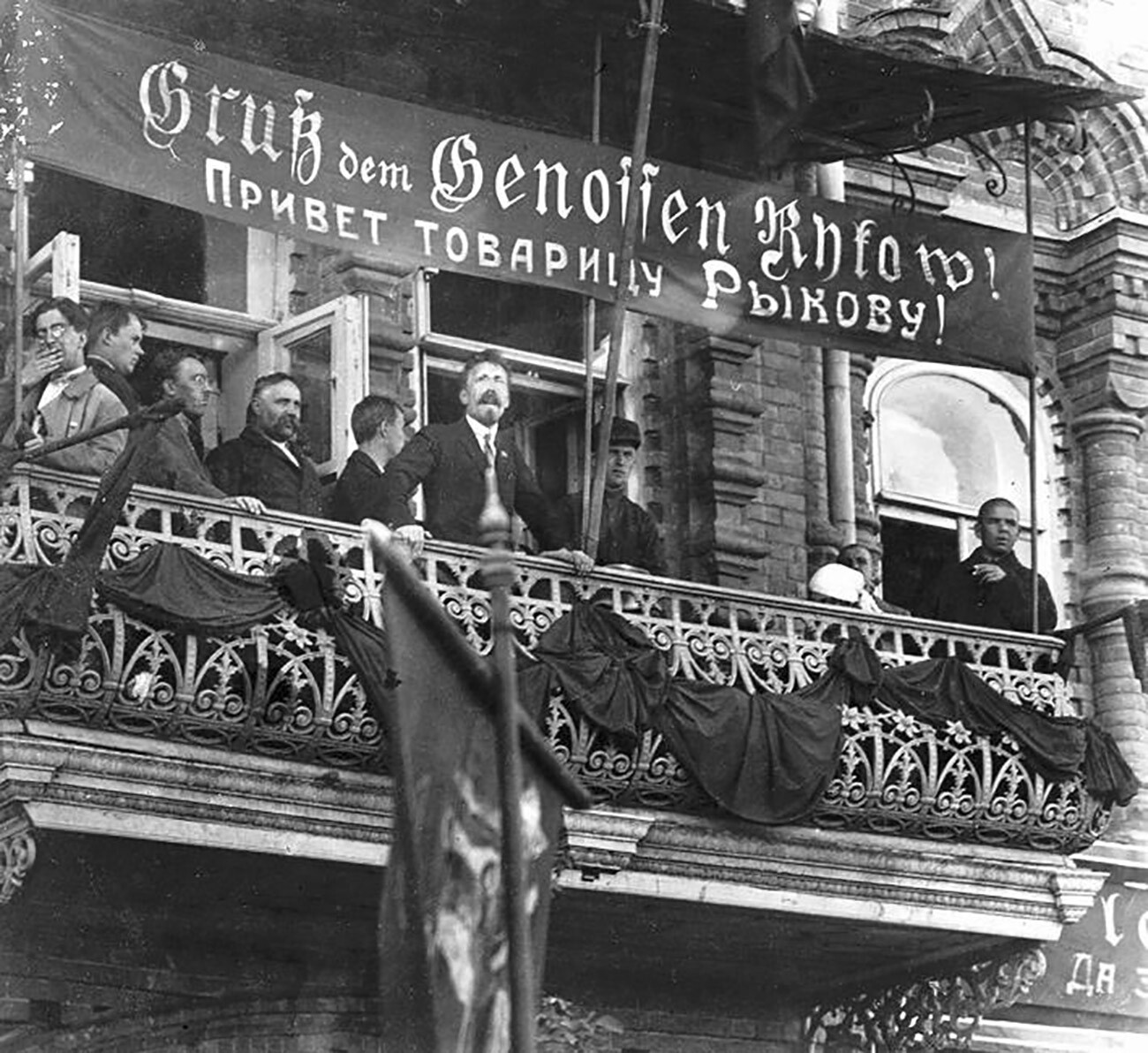
Bolshevik politician Alexei Rykov in Pokrovsk, 1924.
Archive photoThe first Volga German region was called a Labor commune. German settlements became a new region, while other territories were still subjects to the provincial authorities – that’s why the new state subject looked like a patchwork with enclaves on maps. The organization of “self-government on Soviet principles” was coming along with difficulties: by the moment the decree for creating the region was published, the Civil War was already raging in Russia (1918-1923). The struggle unfolded close to the region and, although it saw almost no military action, the commune served as a resource base for the Red Army, for both material and human resources. All of this went hand-in-hand with violence, leading to rebellions that were harshly suppressed.

“If you were not there to see it you would not believe how they treated the Germans on the Volga. Everything was taken from them, first their money, then their fruit, meat, flour, horses, cattle, sheep, pigs, chickens and the last of their clothing was also taken. Troops were sent by the government in Moscow to the German villages. They took everything, everything; those who refused were shot,” teacher Alexander Schick wrote about the situation in the settlements.
At the beginning of 1921, the German settlements of Povolzhye were struck by famine, affecting, according to the calculations of Arkady Herman, the largest Russian expert of the Volga German autonomous region, roughly 97% of the population. The situation was further exacerbated by typhus and cholera epidemics.
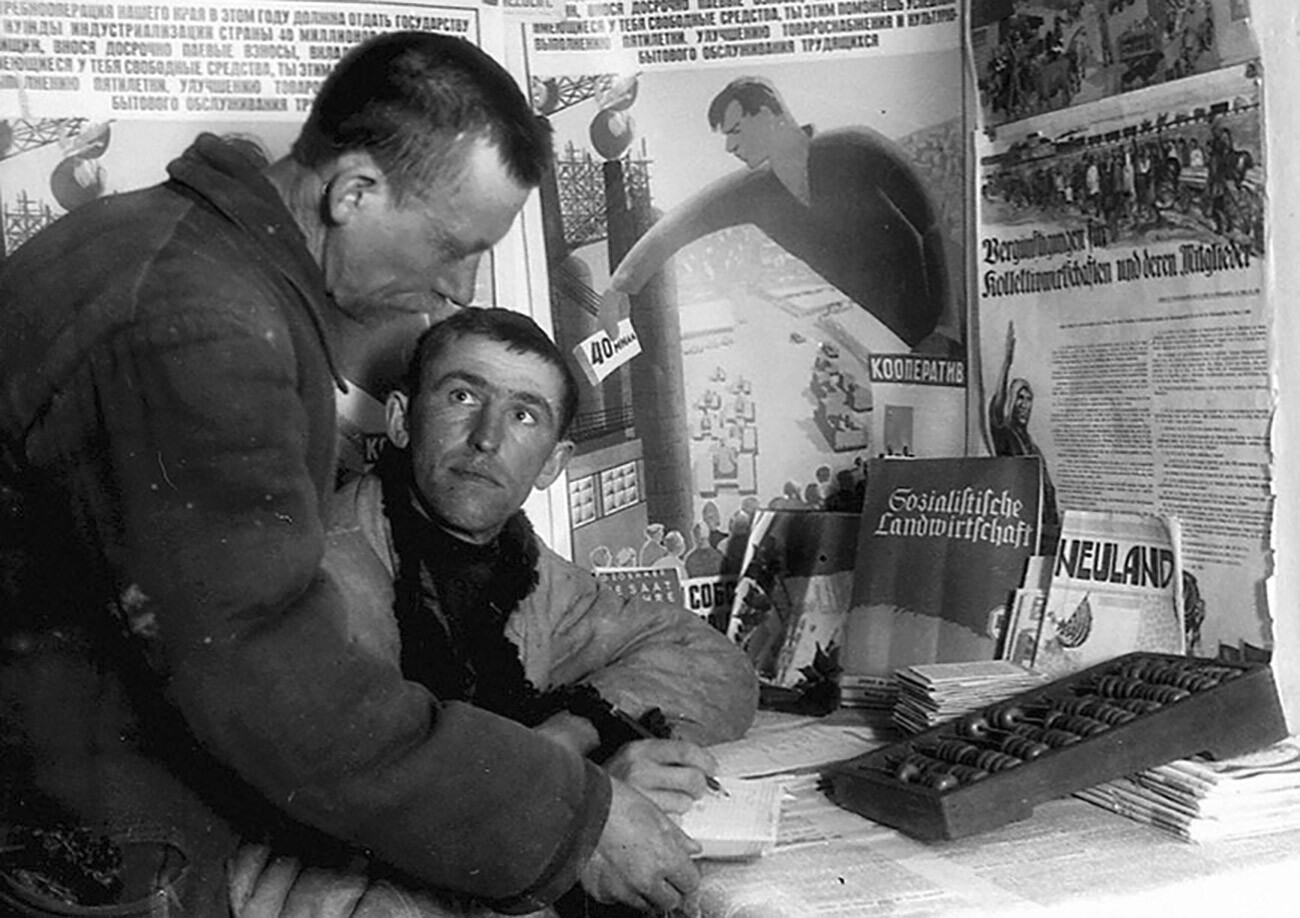
In the New Life collective farm, ASSR of the Volga Germans, 1932
Archive photoAfter the end of the Civil War, the region “smoothed out” its territory and, in 1923, received a new status, becoming an Autonomous Soviet Socialist Republic (ASSR). Pokrovsk became its capital (which later was moved to Engels).
The Republic consisted of cantons; the German language was equal to the Russian and Ukrainian official languages – despite the fact that, during World War I, it was prohibited to teach in German. Now, they were once more studying in German, maintaining their documentation and publishing press in it.
“In some official sources, the Volga German Republic was dubbed ‘Stalin’s blossoming garden’. It was the first in the USSR where illiteracy was eliminated and, where greater emphasis was put on studying the German language, literature and culture in schools,” resident of Povolzhye, Maria Seewald, recalled.
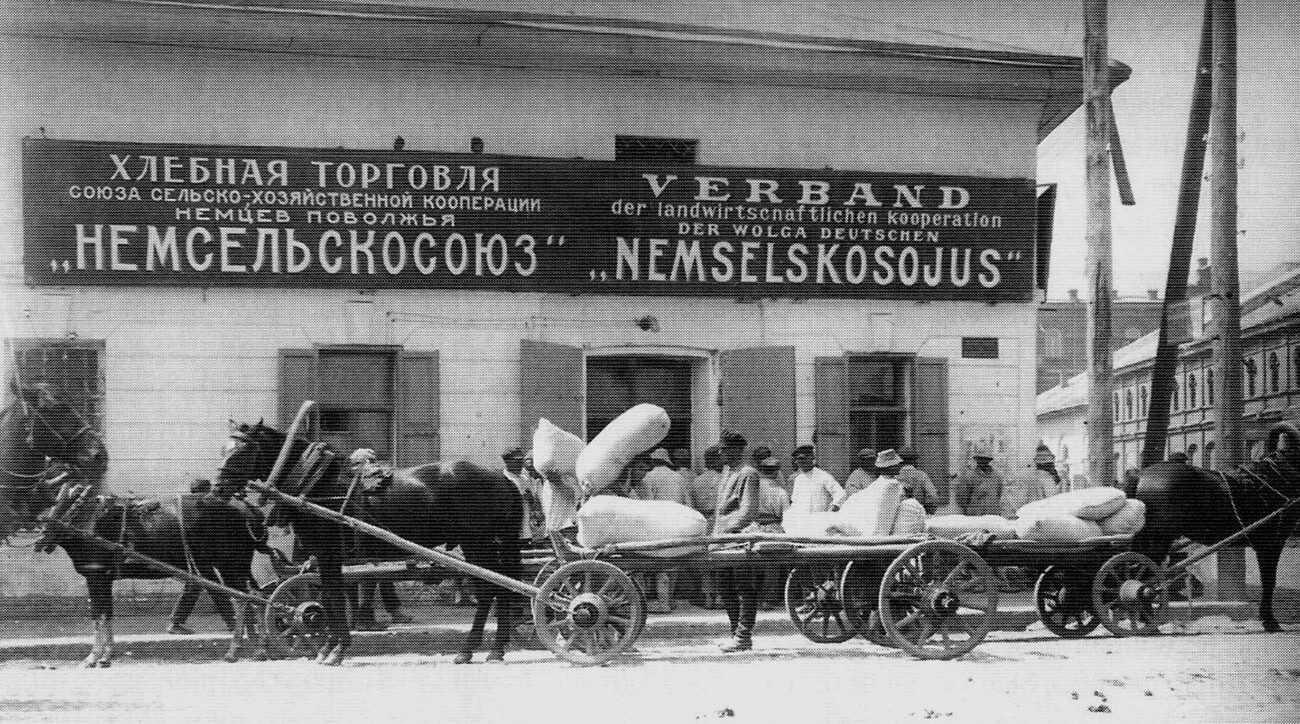
National candidates rose through the ranks and, in 1936, the republic received its own constitution, proclaiming “the socialist state of workers and peasants”. Despite being subordinate to central party and government bodies, the significance of the national-territorial autonomous region was undisputed, as historian Viktor Krieger noted. The constant presence of Povolzhye Republic news in central Russian-language media sent a clear message to the party-state personnel, as well as to the entire Soviet population: the Germans were equal to other nationalities.

Until the middle of the 1930s, the German autonomous region “lived along with the entire Soviet Union, through all its triumphs and all the troubles of this turbulent era”, as historian Alexei Volynets noted.
Economic and political measures, undertaken by the Soviet authorities, reflected on the local population: first – recovery thanks to the implementation of market elements into the economy, then – industrialization with its enterprises and collectivization with transforming individual farms into collective farms, often forcefully. The region’s authorities received messages like: “Village Keller. Kolkhoz woman Ekaterina Mildenberger ‘resisted the order to give up her cow’, shouting, ‘I hope you will all die!’”

The wave of the great famine of 1932-1933 took Povolzhye, as well. The locals suffered from a lack of bread, flour, meat, livestock feed, sugar and soap. “It is a struggle to live. With fire it is the same, we can buy neither wood nor straw for heating for any amount of money,” one of the inhabitants of village Dönhof was recorded as saying about the situation in Povolzhye.
A new trouble came with the deterioration of relations between the USSR and Germany. The first repressive measures were undertaken in 1934: humanitarian aid from abroad was stopped. The Volga Germans had maintained their ties with German diasporas since the Civil War, some people had emigrant relatives.

The mass repressions of 1937-1938 in the USSR, dubbed the Great Purge, affected the Volga Germans, too. Across the entire country, they were the victims of NKVD operations – not just anti-German, but also those aimed at the “kulaks”, wealthy peasants. In the ASSR, many prominent regional political figures were prosecuted in the case over an underground nationalistic fascist organization, which is considered fabricated by historians.
Finally, on August 28, 1941, two months after the attack of Nazi Germany, a Decree of the Presidium of the Supreme Soviet ‘On the deportation of Germans living in the regions of Povolzhye’ was released: “According to reliable information <…> among the German population <…> there are <…> tens of thousands of saboteurs and spies who on command from Germany must produce explosions in the regions <…> of Povolzhye. Nobody from the Germans, living in the regions of Povolzhye, reported such a large amount of saboteurs and spies among the Volga Germans – therefore, the German population <…> is hiding the enemies of the Soviet people and Soviet authorities among them.”
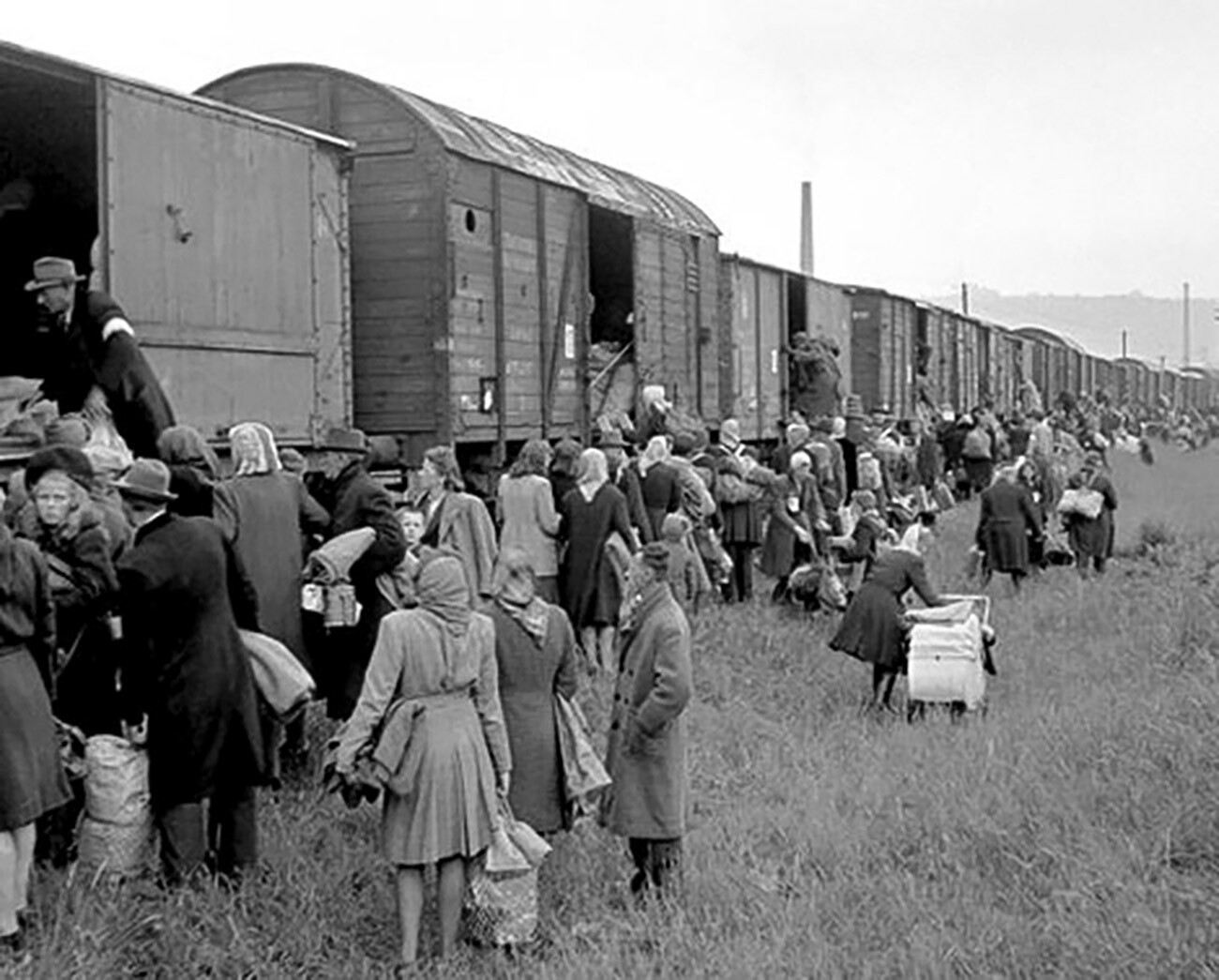
Troops were deployed in the republic, with the first in the line to be deported having to literally one day to prepare. They had to move to Siberia and Kazakhstan.
“Until the Decree <…> people of different nationalities lived in peace, worked, studied and held celebrations in the village of Husaren. Back then, our family had just built a new house, but we managed to spend only three months in it. The Germans from this place were deported among the last. I was 16 at the time,” Maria Seewald remembered. “Russians cried in pity for us. We couldn’t reap our harvest, the grain stayed in the fields, watermelons – everything. Carts came for us, we took the most essential things, what we could find. I remember putting spoons into a basket and my mother said: ‘Why? They’ll put us on a steamboat and sink it. We’re the enemy.’”
According to Arkady Herman’s data, 365,700 people were deported from the ASSR and the republic itself was liquidated forever.
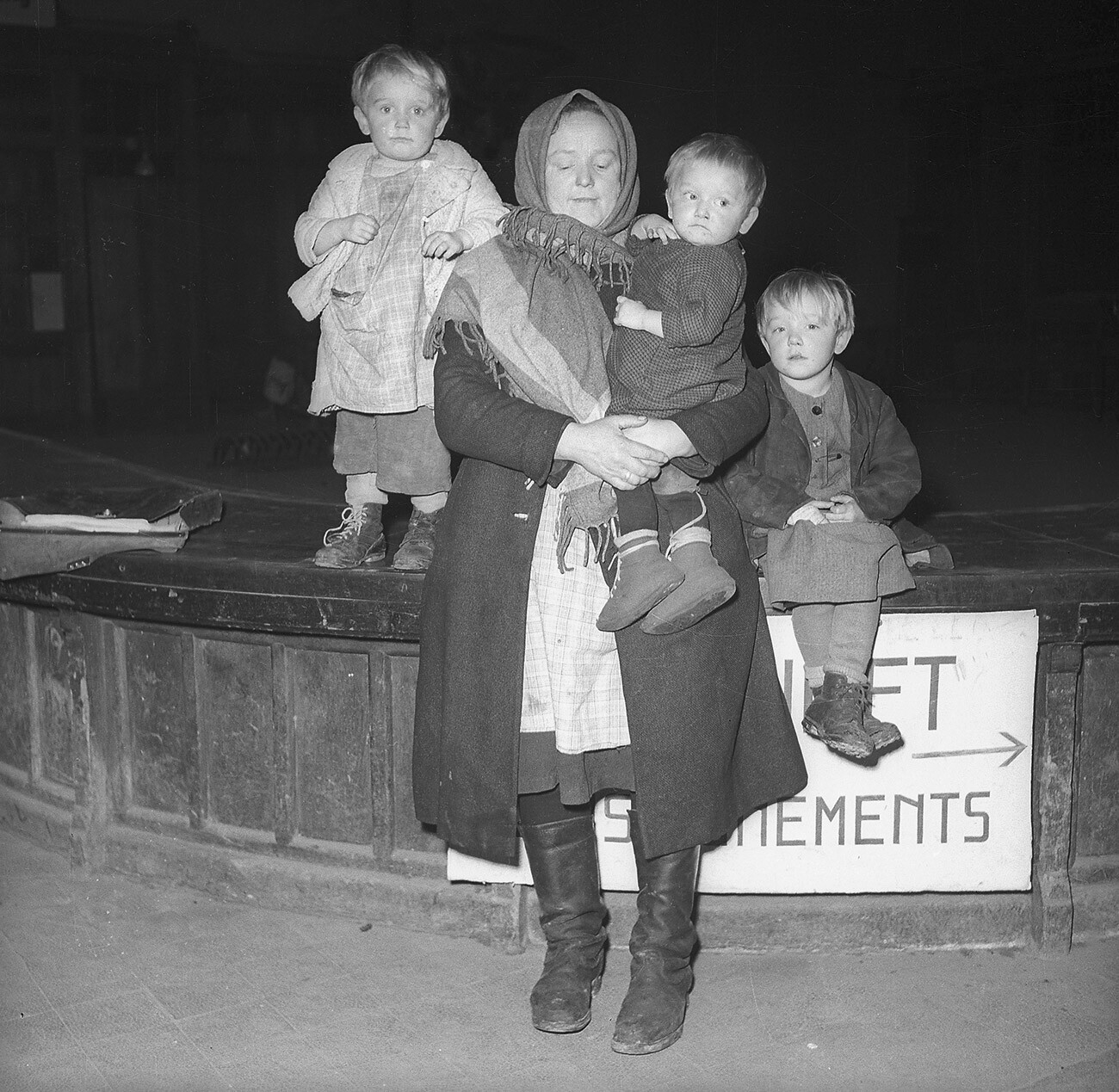
Volga Germans, 1944.
Lindroos/RDB/ullstein bild/Getty ImagesDear readers,
Our website and social media accounts are under threat of being restricted or banned, due to the current circumstances. So, to keep up with our latest content, simply do the following:
If using any of Russia Beyond's content, partly or in full, always provide an active hyperlink to the original material.
Subscribe
to our newsletter!
Get the week's best stories straight to your inbox